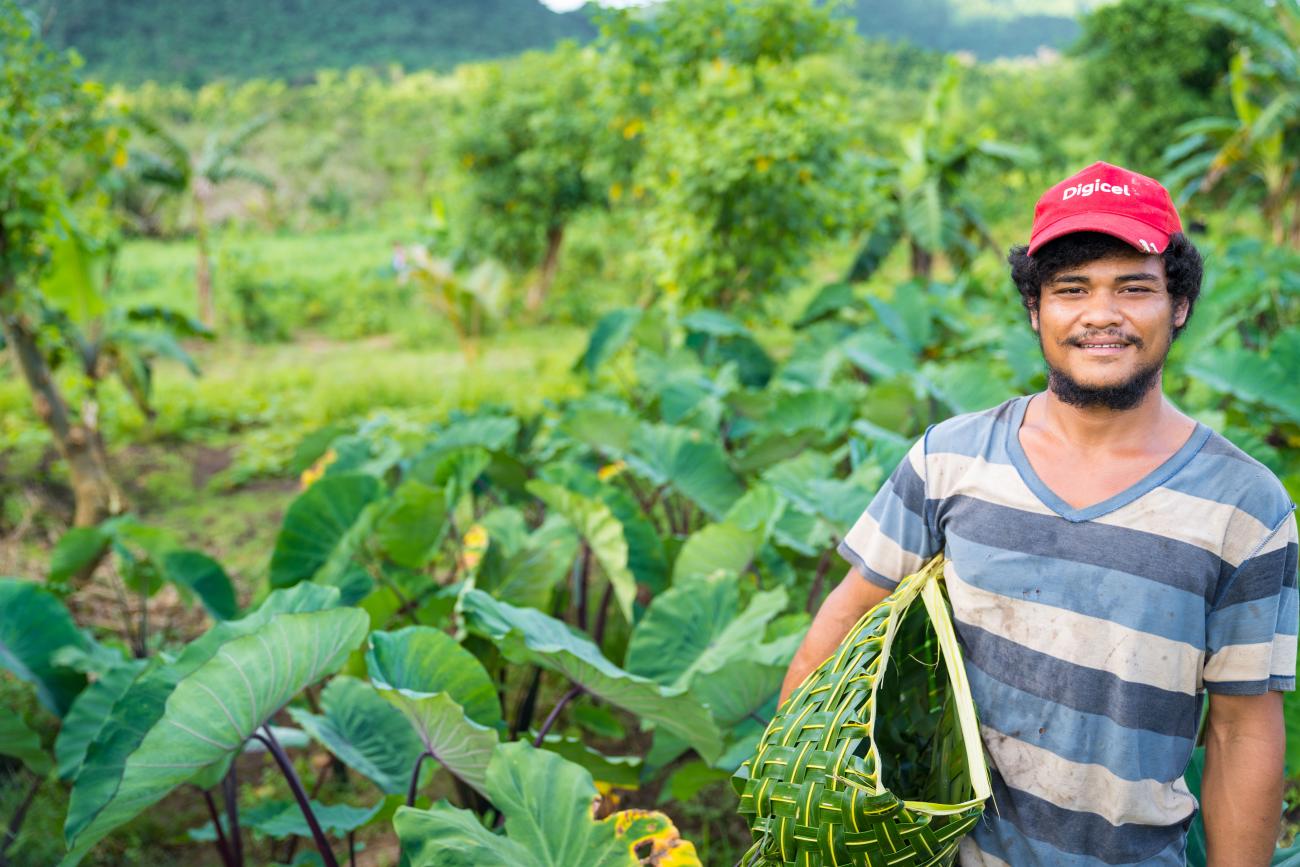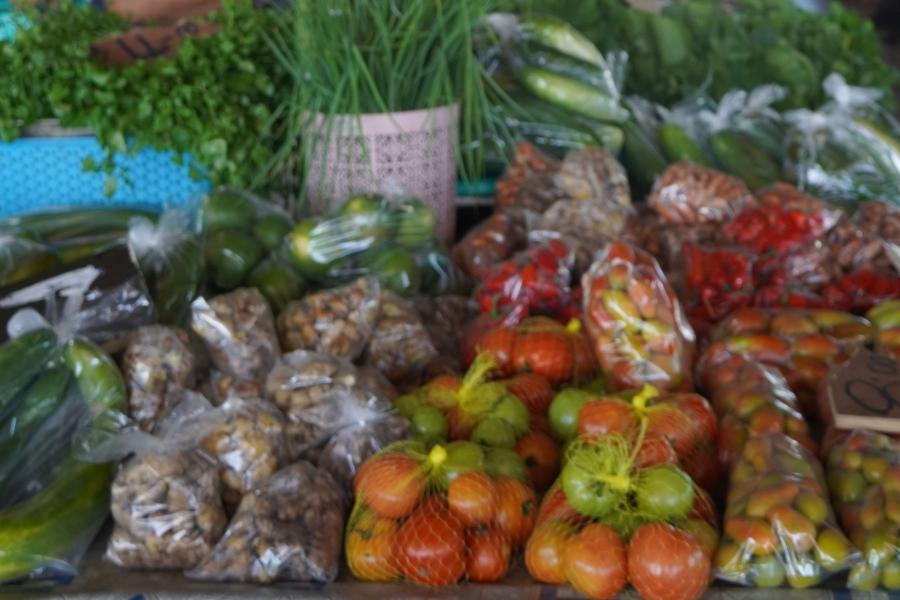Food aplenty, but poor nutrition undermines good health for Samoans.

Stakeholders discussed game-changing solutions to address nutrition issues at the National Food System Dialogue.
On a beautiful and peaceful tropical island like Samoa, food plants and crops thrive naturally. With close to 200,000 people, every family has access to land and about 97% of these families grow a variety of vegetables and crops and raise livestock, mainly cattle, pigs, and chickens, on a subsistence or commercial basis.
In Samoa, food is culture, food is family, food is, land and the ocean, it is everything. The Samoans strongly believe that food is abundant and there is no extreme starvation. While there is plenty to eat, there are serious health issues due to poor nutrition and poor dietary choices. The 2018 Samoa Household Income and Expenditure Survey (2018 HIES) findings show less than 1 person out of 20 is undernourished. It goes on to show that about 1 person in 4 does not have access to safe and nutritious food.
The nutrition issue is notable in several health assessments that indicate poor nutrition as one of the four risk factors associated with Non-Communicable Diseases (NCDs). We learn from the Samoa NCD Risk Factors STEP report, that NCDs are high and increasing with overweight at 84.7%, obesity at 63.1%, diabetes at 24.8% and hypertension at 24.5%.
Alarming to find also is the fact that NCDs are now prevalent in children and complications from these diseases are more common. The Global School Health Survey conducted in 2010 amongst the 13-15 age group, found that 43.4% of boys and 59.1% of girls were overweight, of which 15.7% and 22.3% respectively are obese. The reports also noted that the high rise of NCDs results from how the traditional dietary patterns have changed dramatically from natural cultivated, nutritious low-fat foods to convenient oily, fatty, sugary or salted processed food.

These are a few concerns that placed nutrition as a critical topic of discussion at the first National Food System Dialogue organized for Samoa to examine the vulnerabilities of its food system.
Bearing in mind the effect that poor nutrition has on the children, the dialogue agreed that in order to reverse the unhealthy eating patterns, home is the best place to start and the schools need to reinforce it by paying close attention to the food products available at the school canteens.
Aside from poor nutrition the dialogue also explored other barriers to ensuring that Samoa can build a safe, nutritious and sustainable food system such as unequal access and distribution of food, affordability, safety, and high production costs.
The National Dialogue is led by the Ministry of Agriculture and Fisheries with the Chief Executive Officer of the Ministry of Agriculture and Fisheries, Tilafono David Hunter as the National Convener with the support of the National Curator Matatumua Taimalietane Matatumua leading a Multi-Sectoral Coordinating Committee (MSCC) to ensure the successful design, implementation and reporting of Samoa’s dialogue to the global Food Systems Dialogue Summit.
Through the National Food System Dialogue, the MAF and the United Nations brings together all our relevant stakeholders to explore, debate and shape our pathways for sustainable food systems that will contribute to the relevant SDGs relating to eliminating hunger, creating more inclusive and healthier food systems, and safeguarding the health of the earth. It also aligns with our sector objectives in ensuring food and nutrition security, increasing import substitution and agricultural and fishery exports.
The National Dialogue will conclude with a special session with the UN agencies and other development partners this week where they will be informed of the challenges and opportunities in supporting initiatives that contribute to the sustainable development and enhanced performance of Samoa’s Food System.
Food touches every aspect of our lives. Together, we can build strong #foodsystems.
About the 2021 UN Food Systems Summit: The UN Food Systems Summit was announced by the UN Secretary-General, Antonio Guterres, on World Food Day last October as a part of the Decade of Action for delivery on the SDGs by 2030. The Summit aims to deliver progress on all 17 of the SDGs through a food systems approach, leveraging the interconnectedness of food systems to global challenges such as hunger, climate change, poverty and inequality. More information about the 2021 UN Food Systems Summit and a list of Advisory Committee and Scientific Group members can be found online: https://www.un.org/foodsystemssummit
Note to Editors: Please contact for more information Kevin Hadfield: Kevin.Hadfield@fao.org: Bernadette Tuiletufga: bernadette.tuiletufuga@maf.gov.ws Aterina Samasoni: aterina.samasoni@un.org









